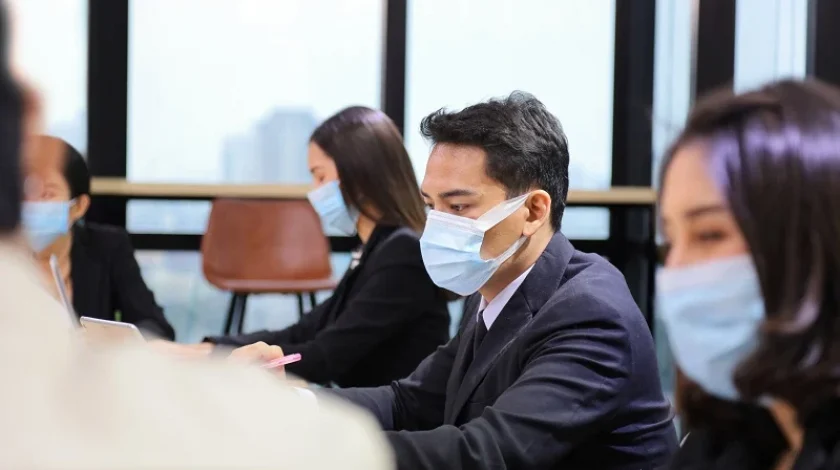The NSW Government’s most recent public order, Public Health (COVID-19 Temporary Movement and Gathering Restrictions) Order 2021 (Order), has introduced a number of restrictions affecting certain industries and has significant ramifications for both employers and employees.
Contact tracing has revealed that an increasing number of COVID-19 cases in NSW are the result of the transmission of the virus in the workplace, with now almost 1 in 10 cases being linked to workplace transmission. Latest figures indicate that since June,123 people have caught the virus at work, and approximately 30% of these cases have then gone on to transmit the virus outside of their own household, including to healthcare and aged care facilities.
Workplace transmission has therefore contributed notably to the tightening of restrictions across Sydney, which has in turn affected many employers and employees detrimentally.
Restriction overview
Working from home
The Order directs that employers must allow an employee to work from home if reasonably practicable. What is reasonably practicable must be determined on a case by case basis taking into account the health and safety of the individual and others impacted by the decision.
Where it is not reasonably practicable for an employee to work from home, the employee must abide by social distancing rules and wear a mask in the workplace unless:
- an exemption applies; or
- the nature of the work makes wearing a mask a risk to the person’s health and safety or that of another person; or
- the work requires clear enunciation or visibility of the person’s mouth (i.e, it is essential).
Open for business?
Greater Sydney is subject to further restrictions requiring that a number of premises close, including pubs and registered clubs, food and drink premises, and entertainment facilities. There are, however, a number of exceptions that may apply. For example, certain premises must be allowed to operate for the purposes of selling food and beverages to consume off the premises. In addition, the Order allows for certain retail premises to remain open, including supermarkets and chemists.
One of the most concerning restrictions is that requiring the closure of construction sites across Greater Sydney. To read more about this, take a look at the Coleman Greig Lawyers Building & Construction Team update here.
Who can work?
While all of Greater Sydney is affected by the Order and related restrictions, those who live in the Fairfield, Canterbury Bankstown and Liverpool local government areas (LGAs) are restricted the most. Specifically, residents of these LGAs are unable to leave their residential premises unless their place of work is permitted to remain open and they are an authorised worker.
An authorised worker includes:
- Supermarket workers;
- Health care and social assistance providers;
- Manufacturers e.g. food, medical equipment;
- Transport, postal and warehousing workers; and
- Electricity, gas, water and waste services.
A full list of authorised workers can be found here.
As an additional measure, the following groups of people must have a COVID-19 test once every 72 hours (3 days):
- Residents in the Fairfield LGA but work outside the area; and
- From 23 July 2021, aged care or health workers residing in the Canterbury-Bankstown LGA who work outside that area.
You must have proof of the test such as a SMS message or email confirming a test has been undertaken.
Penalties for breaching the Order go up to $11,000 or attract a maximum imprisonment penalty of 6 months. It includes on the spot fines of $1,000 and $5,000 fines each day the breach continues.
Financial assistance
Contrary to what some might have expected, and as was done last lockdown, the Government has not implemented the JobKeeper payment scheme this time around. However, the Government has made available for following forms of financial assistance, including:
- COVID-19 Disaster Payment;
- COVID-19 Micro Business Grants;
- COVID-19 Business Grants; and
- Job Saver.
Details of these payments and eligibility requirements are in the PDF which you can downloaded here.
Vaccines
Whilst the COVID-19 vaccine is not mandatory for all employees, except for Aged Care, Airport and Quarantine workers in NSW, employers are providing incentives for their staff to get the jab. For example, employees are offering half a day off without affecting accrued sick or any other leave entitlements. At this time, approximately 13% of the Australian population is fully vaccinated. It is expected that this figure will continue to grow as the pandemic shows no sign of slowing.
Employers have an obligation under work health and safety law to eliminate or minimise, so far as is reasonably practicable, the risk of exposure to COVID-19 in the workplace. Crucially, the vaccine is considered a control measure to mitigate this risk in keeping with an employer’s duty.
For more information on whether employers can mandate the COVID-19 vaccine, please read our previous article here.
For employers dealing with employees who do not wish to be vaccinated and are unsure how to respond, please read our previous article here.
Key Issues
Our Employment and Immigration Law Team understands that current restrictions are having a significant impact on individuals and businesses across Greater Sydney and beyond. Some important things to consider are:
- Whether the restrictions changed recently, and if so, whether you or your business is still compliant;
- Eligibility to receive financial assistance (individual and business);
- Options where there is no useful work available for your employees;
- Employee entitlements on stand down;
- Directions to take leave during this time; and
- How COVID-19 might affect your WHS obligations, including the business position on the vaccination of employees.
These are only a few of the many considerations employers should make during this challenging time.
If you require any assistance to determine and manage the impact of these restrictions on your workplace, or if you have any questions relating to the above, please do not hesitate to contact a member of Coleman Greig’s Employment Law team, who would be more than happy to assist you.
This update includes the amendment to the Order on 21 July 2021.














